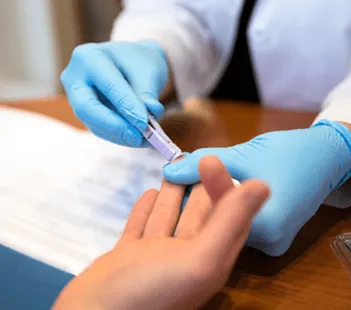January 01, 2017

What Is HIV?
HIV is the virus that causes AIDS. In the U.S., about 1.2 million people are living with HIV or AIDS. Of those people, about 250,000 have HIV but don 't know it. This year, about 40,000 new people will become infected with HIV in the U.S.
How Do People Get HIV?
HIV can be passed from persons with the HIV virus through:
- Blood
- Semen
- Vaginal secretions
- Breast milk
HIV is spread through:
- Unprotected vaginal or anal sex
- Direct blood contact, such as sharing needles
- From mother to baby, either before or during birth or through breast milk
HIV is NOT passed through:
- Phones
- Sharing food utensils, or towels and bedding
- Toilet seats
- Swimming pools
- Biting insects such as mosquitoes or bedbugs
How Can I Protect Myself From HIV?
- Get tested. It is important to know if you have HIV. If you are positive, then you can get treatment and you can take steps to not give HIV to others.
- Talk to your partners about their HIV status before having sex
- Practice "safer sex" and always use condoms. You can also ask your care provider.
- Limit the number of sex and needle-sharing partners
- Have only one sex partner who is only having sex with you. Get tested together for STDs and HIV.
- Do not share needles
What Do My HIV Test Results Mean?
A negative HIV test result means that, at the time of your test, HIV was not found in your blood. If you have had unprotected sex or have shared needles in the last 3 months, you should get re-tested in the near future.
A positive HIV test result means that it is very possible that you have an HIV infection. More testing is needed to make sure. It is very important that you have follow-up testing done.
Where Else Can I Go to Get Tested?
For free or low-cost HIV testing, call the Denver Metro Health Clinic at (303) 602-3540 or visit the clinic at 605 Bannock Street, room 117. For information about other locations that offer free HIV testing, call (303) 602-3600.

